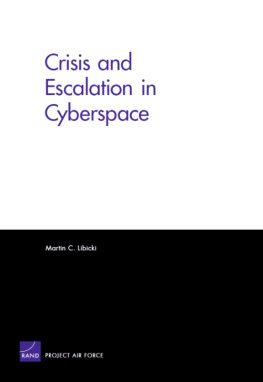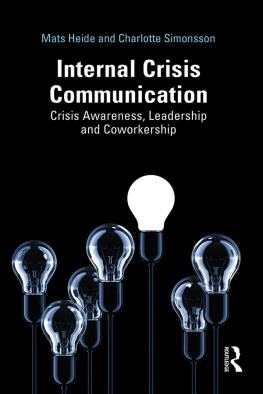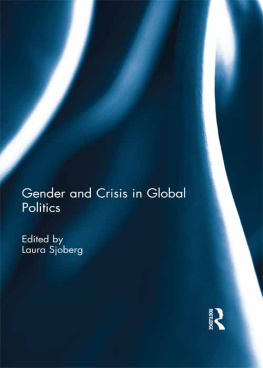The Pedagogy of Economic, Political and Social Crises
Crises have been studied in many disciplines and from diverse perspectives for at least 150 years. Yet recent decades have seen a marked increase in the crisis literature, reflecting growing awareness of crisis phenomena from the 1970s onwards.
Responding to this mainstream literature, this edited collection makes six key innovations. First, it distinguishes between crises as event and crises as process, as well as crises as accidental events or as the result of system-generated processes. Second, it distinguishes crises that can be managed through established crisis-management routines from crises of crisis management. Third, it focuses on the symptomatology of crisis, i.e., the challenge of moving crisis symptoms to understanding underlying causes as a basis for decisive action. Fourth, it goes beyond the clich that crises are both threat and opportunity by distinguishing valid accounts of the origins and present nature of a crisis, from more speculative accounts of what potentially exists. Fifth, it explores how crises can disorient conventional wisdom, thus provoking efforts to interpret and learn about crises and draw lessons after a crisis has ended. Finally, the sixth element is the move away from the conventional focus on executive authorities and disaster management agencies, instead turning attention towards how other social forces construe crises and attempt to learn from them.
Offering important insights into the pedagogy of crisis throughout, this collection will offer excellent reading to both researchers and postgraduate students.
Bob Jessop is Distinguished Professor of Sociology and Co-Director of the Cultural Political Economy Research Centre at Lancaster University, UK. He is best known for his contributions to state theory, critical political economy, the analysis of comparative welfare regimes, critical governance studies, and cultural political economy.
Karim Knio is Associate Professor in International Political Economy and Governance at the Institute of Social Studies, The Hague, Netherlands. He is also the current Associate Managing Editor of European Political Science Review (EPSR). His research focuses on the intersection between international political economy, governance and public policy.
Routledge Frontiers of Political Economy
242. Class and Property in Marxs Economic Thought
Exploring the Basis for Capitalism
Jrgen Sandemose
243. Economics, Ethics and Power
From Behavioural Rules to Global Structures
Hasse Ekstedt
244. Supranational Political Economy
The Globalisation of the State-Market Relationship
Guido Montani
245. Free Cash, Capital Accumulation and Inequality
Craig Allan Medlen
246. The Continuing Imperialism of Free Trade
Developments, Trends and the Role of Supranational Agents
Edited by Jo Grady and Chris Grocott
247. The Problem of Political Trust
A Conceptual Reformulation
Grant Duncan
248. Ethics and Economic Theory
Khalid Mir
249. Economics for an Information Age
Money-Bargaining, Support-Bargaining and the Information Interface
Patrick Spread
249. Economics for an Information Age
Money-Bargaining, Support-Bargaining and the Information Interface
Patrick Spread
250. The Pedagogy of Economic, Political and Social Crises
Dynamics, Construals and Lessons
Edited by Bob Jessop and Karim Knio
For more information about this series, please visit: www.routledge.com/books/series/SE0345
First published 2019
by Routledge
2 Park Square, Milton Park, Abingdon, Oxon OX14 4RN
and by Routledge
711 Third Avenue, New York, NY 10017
Routledge is an imprint of the Taylor & Francis Group, an informa business
2019 selection and editorial matter, Bob Jessop and Karim Knio; individual chapters, the contributors
The right of Bob Jessop and Karim Knio to be identified as the authors of the editorial material, and of the authors for their individual chapters, has been asserted in accordance with sections 77 and 78 of the Copyright, Designs and Patents Act 1988.
All rights reserved. No part of this book may be reprinted or reproduced or utilised in any form or by any electronic, mechanical, or other means, now known or hereafter invented, including photocopying and recording, or in any information storage or retrieval system, without permission in writing from the publishers.
Trademark notice: Product or corporate names may be trademarks or registered trademarks, and are used only for identification and explanation without intent to infringe.
British Library Cataloguing-in-Publication Data
A catalogue record for this book is available from the British Library
Library of Congress Cataloging-in-Publication Data
Names: Jessop, Bob, editor. | Knio, Karim, editor.
Title: The pedagogy of economic, political and social crises : dynamics,construals and lessons / edited by Bob Jessop and Karim Knio.
Description: Abingdon, Oxon ; New York, NY : Routledge, 2019. | Series: Routledge frontiers of political economy ; 250 | Includes bibliographical references and index.
Identifiers: LCCN 2018030853 (print) | LCCN 2018032475 (ebook) | ISBN 9781315161587 (Ebook) | ISBN 9781138062504 (hardback : alk. paper) Subjects: LCSH: Crises. | Crisis management.
Classification: LCC HN13 (ebook) | LCC HN13 .P4185 2019 (print) | DDC 303.48/4dc23
LC record available at https://lccn.loc.gov/2018030853
ISBN: 978-1-138-06250-4 (hbk)
ISBN: 978-1-315-16158-7 (ebk)
Figures
Tables
Editors
Bob Jessop is Distinguished Professor of Sociology and Co-Director of the Cultural Political Economy Research Centre at Lancaster University. He is best known for his contributions to state theory, critical political economy, the analysis of comparative welfare regimes, critical governance studies, and cultural political economy. His most recent books comprise: Beyond Cultural Political Economy: Putting Culture in its Place in Political Economy (with Ngai-Ling Sum, 2013, Edward Elgar); The State: Past, Present, Future (Polity 2015); Cultures of Finance and Crisis Dynamics (co-edited with Brigitte Young and Christoph Scherrer, 2014, Routledge); and Transnational Capital and Class Fractions: The Amsterdam School Perspective Reconsidered (co-edited with Henk Overbeek, 2018, Routledge).
Karim Knio is Associate Professor of International Political Economy and Governance at the Institute of Social Studies (ISS) of Erasmus University Rotterdam. He is the current Associate Managing Editor of European Political Science Review (EPSR). His research focuses on the intersection between international political economy, governance and public policy. He has research interests in the literatures on varieties of capitalism, institutional analysis, politics of crisis management, EU democracy promotion programs and Lebanese politics. He is the author of The European Unions Mediterranean Policy: Model or Muddle? A New Institutionalist Perspective (Palgrave Macmillan 2013), and The South China Sea and Asian Regionalism: A Critical Realist Perspective (with Thanhdam Truong) (Springer 2016).
Contributors
Robert Boyer is Emeritus Professor of Economics at Institut des Ameriques, France.









